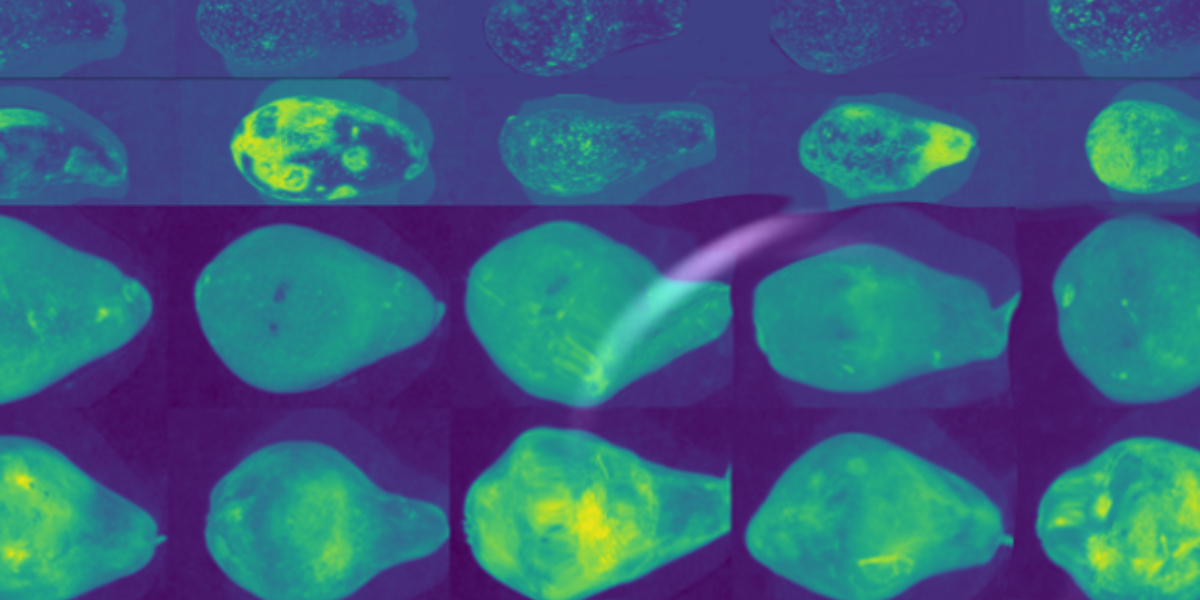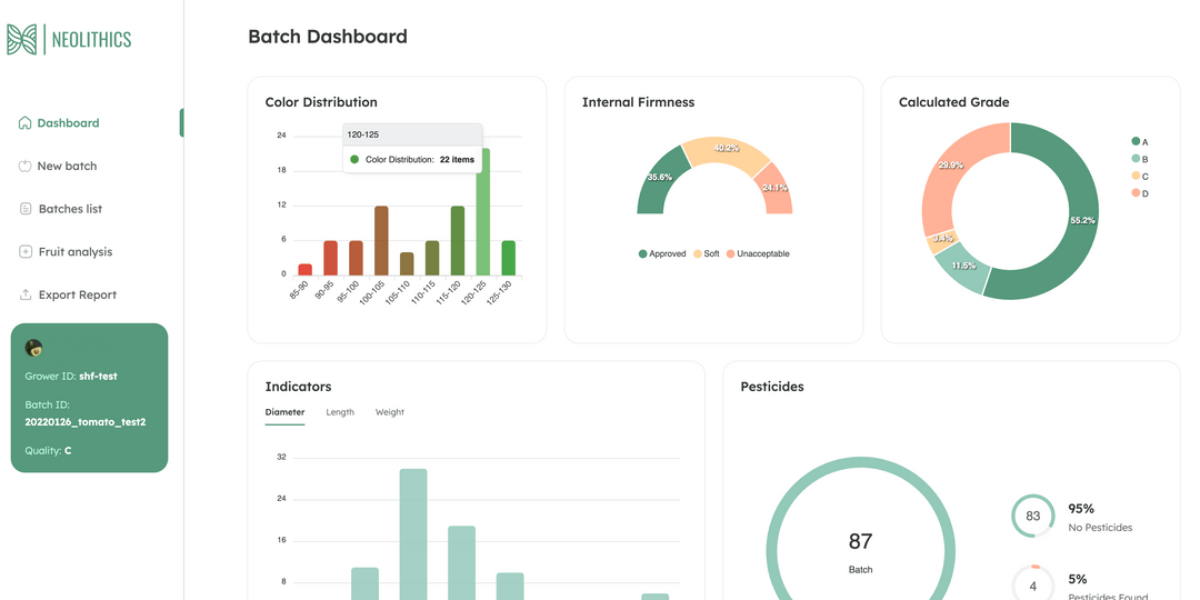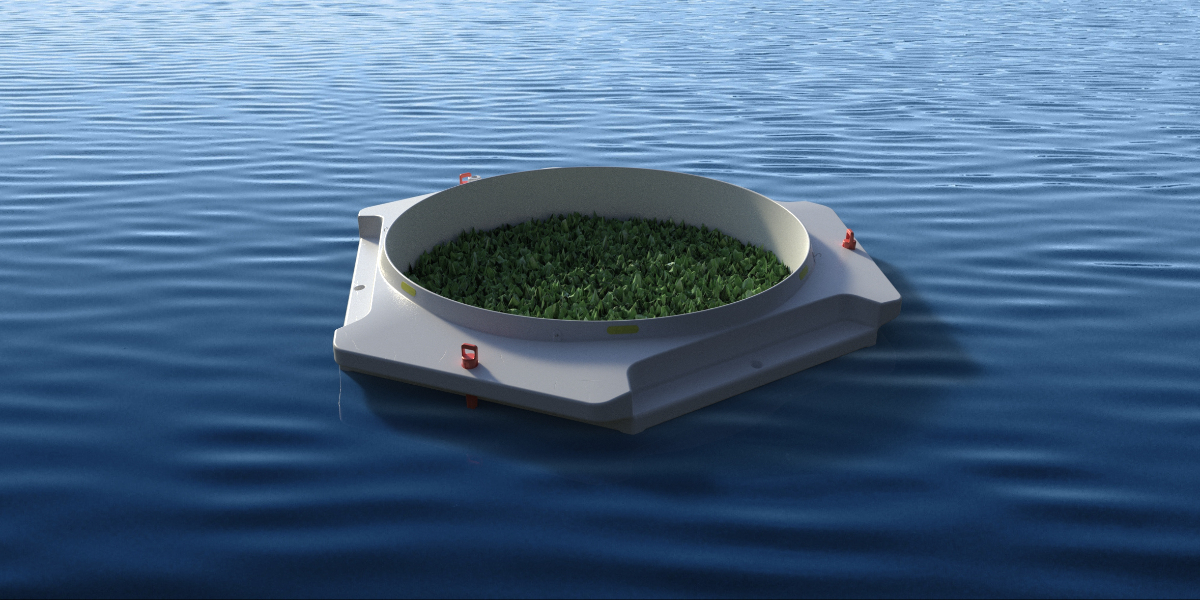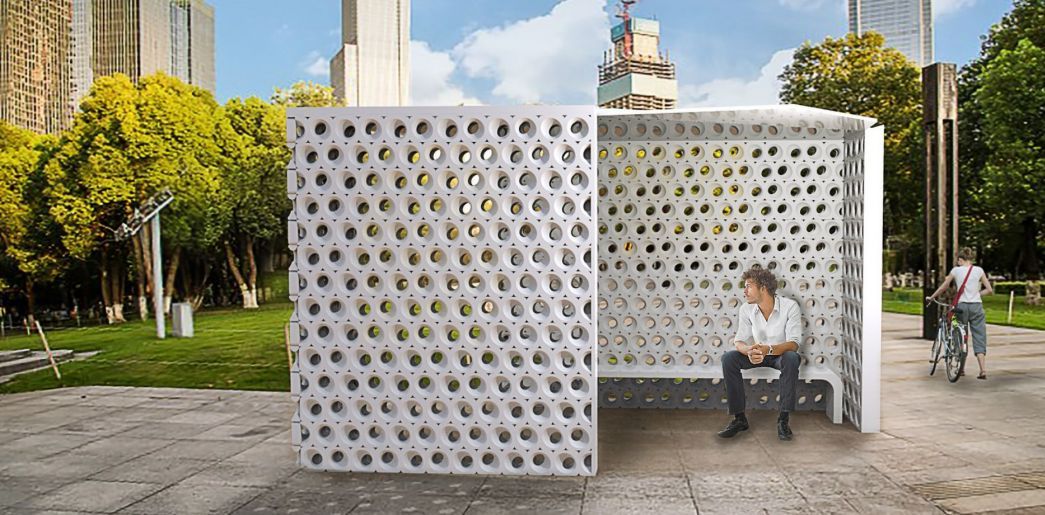AWARD YEAR
2023
CATEGORY
Community
GOALS
Zero Hunger, Industry, Innovation & Infrastructure, Climate Action
KEYWORDS
fresh food, Reduce food wastage, food waste, AI, crops
COUNTRY
Israel
DESIGNED BY
Amir Adamov
WEBSITE
https://www.neolithics.ai/
Neolithics
AI checks the freshness of fruit
How does it work?
Neolithics technology actively detects, classifies, and sorts crops on conveyors. The technology integrates seamlessly onto existing automation equipment with no interruption to the production rate. The Artificial Intelligence software knows how to analyze hyperspectral images from off-the-shelf cameras. The result is in-depth visibility of the crops’ various conditions. Neolithics uses hyperspectral cameras to inspect each item of produce from 360 degrees. The images are then analysed for signs ranging from bruising to internal chemical properties like sugar, starch and fibre content, and acidity. The system also looks for anomalies, like uneven liquid distribution, which can signal problems. The AI can also measure residual levels of chemicals and pesticides. Each scan is compared to a huge data set to determine which produce meets set standards for firmness, predicted shelf life or other factors
Why is it needed?
As much as one-fifth of all fresh produce is lost due to poor handling and storage before it ever reaches the grocery store. Much of this occurs because the produce is only inspected from the outside, which does not necessarily indicate how ripe it is or whether there is any rot on the inside. This makes it difficult to predict how it will behave during the shipping or at the customer’s house. Israeli startup Neolithics has developed an AI-based technology to inspect produce from the inside in order to predict when it will be ripe.
How does it improve life?
Stores and farms can use the technology to judge which produce is closer to spoiling and needs to be sold first. In fact, Neolithics is already working with Israeli’s biggest retailer, which uses the system at its warehouse to help determine the best distribution schedule for many of its produce lines. The retailer claims it has been able to cut its quality control budget by more than 80 per cent. Although Neolithics’ system can help markets and distributors save a lot of money, the advances are not just about profit. One-third of all food produced for human consumption globally is wasted, which is not only a huge expense, but also contributes to global warming —wasted food is estimated to be related to between 8 and 10 per cent of greenhouse gas emissions. The company has begun raising its first venture capital round. The funds will be used to expand the technology in the US and Europe and to continue research and development.






